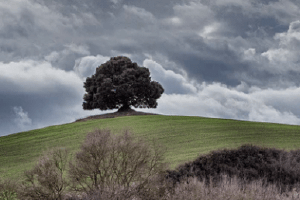Stories That See Us is an ongoing series of book reviews where Salt and Sage Books editors and sensitivity readers share representation done well.
Today, our amazing sensitivity reader Helen Gould reviews Radclyffe Hall’s The Well of Loneliness.
I live in a slightly strange space when it comes to representation, because there aren’t that many stories out there that reflect my exact identity.
The last book I read that came somewhere close to checking all the boxes was actually a sensitivity consultation here at Salt & Sage—it was a lovely romantic comedy about a “fake dating” situation, and I got very invested in it. But it wasn’t because the author had really nailed something about being mixed-race or living in the north of England or anything like that; it was because they took the time to really explore their protagonist’s heartbreak, and I strongly connected with it.
I mention this because I feel that something which can get missed in discussions of identity and sensitivity is that it’s most important that a character is a person, with their own complex emotional landscape.
Nobody is completely shaped by just one or two facets of who they are; each of us have gone through a million unique experiences that have contributed to our personalities. Being marginalised by society does influence how we react and what we go through, often in massive and life-changing ways, but the nuances of everything else in our lives also have an impact. Otherwise, every black character would be written the same—which is exactly the kind of thing that sensitivity readers want to avoid!
Personally, I think that making an emotional connection with your reader is the essence of feeling seen. Back in 1961, James Baldwin said: “You read something which you thought only happened to you, and you discover that it happened 100 years ago to Dostoyevsky. This is a very great liberation for the suffering, struggling person, who always thinks that he is alone. This is why art is important. Art would not be important if life were not important, and life is important.”
I think he was right; I think it’s about realising that you’re not alone in what you’re going through.
I’ve written all of this because the book I’ve chosen to talk about is The Well of Loneliness by Radclyffe Hall, and for me it is what the kids call a problematic fave.

I haven’t chosen it because it speaks to me as a black woman—in fact, since it was published in 1928, it actually occasionally uses racist language that makes me wince. I haven’t chosen it because it’s about a lesbian (I’m bisexual myself), especially as it propagates the homophobic view of the time that being gay was the result of being “between genders” somehow, and it enforces the strict gender roles of the 1920s. I definitely haven’t chosen it because the protagonist is from the English upper class, since as a socialist you’ll never catch me supporting them.
I chose it because the main character loses her father at the age of nineteen, and I had a very similar experience at around the same age. Here’s a snippet of the aftermath of her father’s death:
“Thinking of her father, she realized how greatly she had leant on that man of deep kindness, how sure she had felt of his constant protection, how much she had taken that protection for granted. And so together with her constant grieving, with the ache for his presence that never left her, came the knowledge of what real loneliness felt like. She would marvel, remembering how often in his lifetime she had thought herself lonely, when by stretching out a finger she could touch him, when by speaking she could hear his voice, when by raising her eyes she could see him before her. And now also she knew the desolation of small things, the power to give infinite pain that lies hidden in the little inanimate objects that persist, in a book, in a well-worn garment, in a half-finished letter, in a favourite arm-chair. She thought: ‘They go on—they mean nothing at all, and yet they go on,’ and the handling of them was anguish, and yet she must always touch them.” (Hall, Radclyffe. The Well of Loneliness. Wordsworth Editions, 2014.)
I can’t express strongly enough how much this resonated with me when I first read it. If I remember correctly, I reread it several times in a row, and probably had to put the whole book down in the same way I sometimes have to when I’ve read a particularly sharp poem (Nayyirah Waheed is my go-to for that, by the way). When I went back to try to find this passage, I found that I’d already dog-eared the page so that I’d always know where it was. This description of the confusion, shock, and most of all, the sudden loneliness, spoke to me about my own grief in a way I haven’t come across before or since.
A character doesn’t have to share all the parts of the reader’s identity for that reader to feel that they’re being reflected and acknowledged; they just need to be well-rounded and real enough for the reader to latch on to something in them.

Of course, the idea is to also have a range of identities in your book, because the representation of marginalised people is so lacking—I am certainly not arguing that identity doesn’t matter at all. It’s really important that we show a huge range of people having to deal with all kinds of things, and how/why people might deal with them differently.
For example, there are plenty of stories out there about black characters going through slavery or poverty or other traumatic experiences, but far fewer about them having magical powers or having fantastical experiences. It gets tiring having to read the same kinds of stories about people who look like you over and over again.
Writing diverse characters and diverse experiences is the goal: make sure you have both.

















